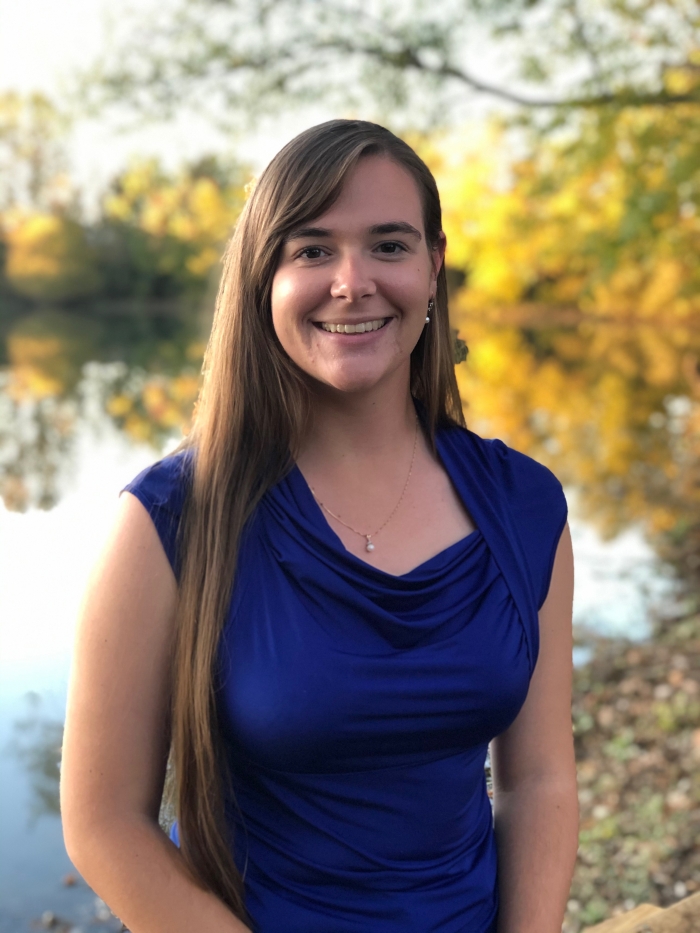SOAR Student Profiles
Catheryn Bolick
- SOAR Position: Member; Alumni
- Major: Music Performance, Biology
- Faculty Mentor(s): Dr. David Nelson
Current Focus: Evaluating Parkin-Dependent Changes in RNA Expression During Periods of Mitochondrial Stress Induced by Depolarizing Agents
Additional Interests: Playing the clarinet, classical ballet, reading, exploring the outdoors, and anything creative (especially painting!)
Project Description
The overarching goal of this research project is to test the hypothesis that Parkin, which regulates the sequestration of dysfunctional mitochondria via its E3 ubiquitin ligase activity in the PINK1:Parkin mitophagy pathway, utilizes its additional transcriptional regulatory activity to play a meaningful role in affecting gene expression, either directly or indirectly, when mitochondrial membranes are depolarized for a prolonged period of time. A lesser goal of this project is to determine if the transcriptional response to carbonyl cyanide m-chlorophenyl hydrazone (CCCP) and BAM15 treatment differs.Why does this topic interest you?
Parkin is one of the genes that, when mutated, can cause autosomal recessive early-onset Parkinson's Disease. Understanding how wild-type Parkin influences gene transcription under circumstances where mitochondria are damaged and/or dysfunctional could give researchers insight into what causes the development of early-onset PD, and potentially age-associated PD as well.What are your professional aspirations?
My plans after obtaining my undergraduate degrees are to attend an MSTP institution to earn an MD and a PhD in Cancer Cell Biology. My career goals include becoming a physician (specifically a Pediatric Oncologist), a cancer researcher, and a medical/graduate school professor, in addition to performing clarinet in professional ensembles and teaching clarinet when my medical schedule allows.Do you have any advice for future researchers?
First, just start somewhere. Even if it's not exactly what you want to do in the future, even if it's only "kind of" in the field you're interested in. A lot of the techniques you learn from doing research can be applied to other areas in a specific field, such as cellular and molecular biology. Second, read A LOT of scholarly publications in the field you're interested in before and during your search for a research lab to join. Don't know where to start looking? Try going on PubMed and typing in the field you're interested in; you never know what you'll find. If you've already found someone who you'd like to do research with, and I cannot stress this enough, READ WHAT THEY HAVE PUBLISHED, especially recent articles. It will give you further insight into what exactly their lab is working on, and you are more likely to get accepted into their lab if you are knowledgeable and well-read on what they are focused on. Third, if a primary investigator (i.e. the professor you want to do research with) sends you articles to read and tells you to follow up with them in a few months, ACTUALLY read what they've given you, mark questions from what you've read, do extra Googling if you need to, and follow up with them. This will show that you're dedicated, plus you will learn a great deal from those Googling sessions. Lastly, do not ever give up. Even if you can't get into a lab right now. Even once you've begun your research and you keep getting the wrong results. Let the process grow you and learn from your mistakes. You can do this :)



